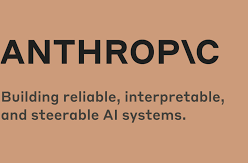Meta, the company formerly known as Facebook, said that it has deepened its ties to Amazon Web Services.
The company said that it already uses AWS to complement its existing on-premises infrastructure, but will expand its use of the world's largest cloud provider.
Meta said that it will run third-party collaborations in AWS and use the cloud to support acquisitions of companies that are already powered by AWS.
It will also use AWS’s compute services for artificial intelligence research and development for its Meta AI group. The two firms work together on improving the performance for customers running PyTorch on AWS, the open source machine learning library primarily developed by Facebook's AI Research lab.
“Meta and AWS have been expanding our collaboration over the last five years,” said Kathrin Renz, vice president of business development and industries at AWS.
“With this agreement, AWS will continue to help Meta support research and development, drive innovation, and collaborate with third parties and the open-source community at scale. Customers can rely on Meta and AWS to collaborate on PyTorch, making it easier for them to build, train, and deploy deep learning models on AWS.”
The majority of Meta's workloads across Facebook, Instagram, WhatsApp, and Oculus will still be run on the company's own data centers. Each year, the company spends tens of billions on facilities, servers, and submarine cables to expand its global footprint.
Last month, the company said it would spend between $29 billion and $34 billion on data centers, servers, and offices in 2022.
"A large factor driving the increase in capex spend is an investment in our AI and machine learning capabilities, which we expect to benefit our efforts in ranking and recommendations for experiences across our products, including in feed and video, as well as improving ads performance and relevance," chief financial officer David Wehner said at the time.
As part of the AI spending, it is developing its own in-house AI chips for video transcoding and recommendations, which would only be used in its own data centers and wholesale footprint.
The deepened partnership with AWS is not expected to drastically change where its current workloads are processed and user data is stored. However, should the company acquire a company using AWS, that could change.
Prior to its $1bn acquisition by Facebook in 2012, Instagram was a major AWS user. Over the next two years, Facebook moved more than 20 billion photographs over to its own data centers. WhatsApp, acquired for $16bn in 2014, used both IBM and AWS.
Under the new deal, both would have remained on Amazon's cloud.




